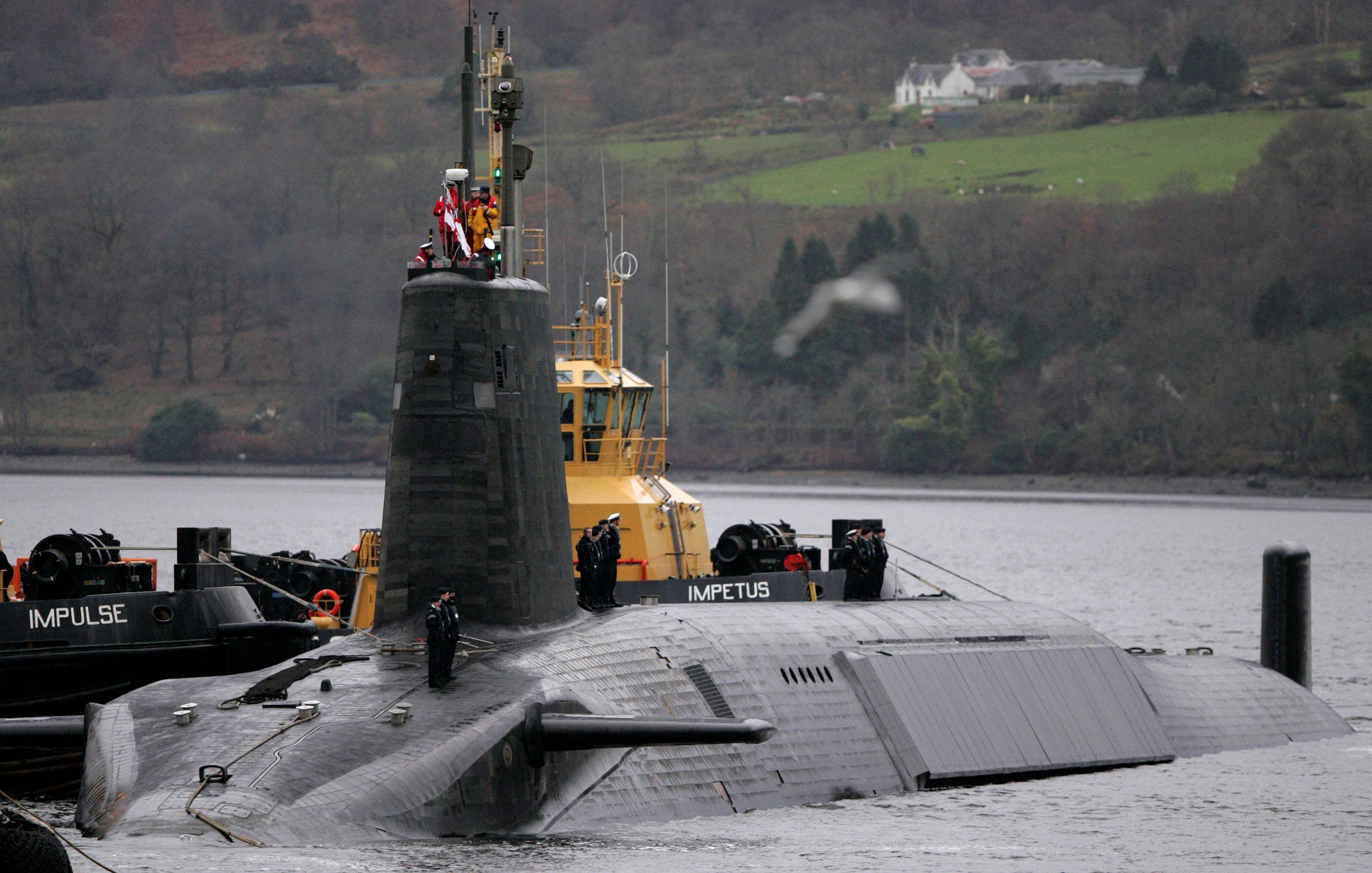Does Britain still possess a credible nuclear deterrent?
Misfiring missiles, a creaking Trident system that could cost £41bn to upgrade, and all this against a highly volatile global backdrop. Sean O’Grady tries to find reassurance among the troubling facts


The news that one of the UK’s proud arsenal of nuclear-capable missiles fell harmlessly into the Atlantic during testing comes as a further embarrassment to the Ministry of Defence.
In recent weeks, the British public, increasingly alarmed at the behaviour of Vladimir Putin, has learnt that the army stands at its lowest strength since the Napoleonic wars, that both of our otherwise magnificent aircraft carriers have trouble getting seaborne, that one of our warships crashed into another because of “faulty wiring”, and that Donald Trump has threatened to withdraw the US commitment to Nato.
Even the special forces, the finest of their kind in the world, are now being accused of war crimes in Afghanistan. It’s not inspiring confidence...
Why are our missiles misfiring?
Something to do with telemetrics, maybe. If anyone does know, then it’s a secret. The MoD says “an anomaly occurred” – a refreshingly novel euphemism for failure – and that the incident was “event specific”. Even so, a similar thing apparently happened in 2016. The government assures us that “there are no implications for the reliability of the wider Trident missile systems and stockpile”. Phew.
Is our independent nuclear deterrent still a deterrent?
An intriguing question. As the often insightful political maverick Count Binface points out, you don’t strictly need to demonstrate that you have a nuclear weapon that you shouldn’t ever need to use; and you could save a lot of money by just convincing everyone that you had got one rather than actually owning it. The worst of all worlds is to have one that might not work, and for your enemies to know all about it. Like now.
So is it a deterrent or not?
Surprisingly arguable. It’s impossible to prove, but it seems plausible that mutually assured destruction perversely kept the peace in Europe during the Cold War, and ensured that the USSR never invaded Western Europe – with Nato adding the necessary infrastructure for collective security.
On the other hand, Trident, its predecessor Polaris, and the various V-bomber strike forces didn’t stop, say, successive waves of terrorists, colonial-era revolts, the Argentine invasion of the Falklands, 9/11, or attacks on British forces in Afghanistan, Iraq and elsewhere.
How much does the deterrent cost?
The present missile system, called Trident, is operated by four Vanguard-class submarines, and its commissioning dates back to the late 1970s/early 1980s. It replaced the Polaris system. It cost about £21bn in today’s money to acquire, over many years, and it costs about £3bn a year to run now (some 6 per cent of the defence budget).
Trident is due for replacement, and the new system and fresh Dreadnought-class submarines will set the UK back around £33bn to £41bn. So, say, rather more in total than Labour’s green prosperity programme, or enough to extend HS2 from Birmingham to Manchester.
Is it independent?
Harold Wilson, when he was leader of the opposition 60 years ago, quipped that the “British independent deterrent” was neither British, independent nor a deterrent, principally because the UK had been critically dependent on American technology since President John F Kennedy had decided he could trust the British (after a series of famous spy scandals) and handed the secrets over to the then prime minister, Harold Macmillan, in about 1962.
It’s never been that clear whether a British prime minister could just loose off a nuke towards Moscow, Tehran or Buenos Aires without asking the White House first. Common sense suggests that unilateral action by the British wouldn’t happen.
How embarrassing is this?
Reports say that the defence secretary, Grant Shapps, was present at the failed test, which feels appropriate.
It’s not really a Kim Jong-un level of shameful, whereby army bosses could be mortared to death after such a humiliation, because what’s left of Britain’s national pride doesn’t critically depend on starving the population to pay for an oversized military. Still, you can imagine a wry smile playing across the lips of Putin when his courtiers tell him what’s been going on with our missiles.
What shall we do if Trump scraps Nato?
That would have serious implications for the nuclear deterrent as well. Unfashionable as it may be to suggest, some sort of Europe-wide agreement for cooperation and mutual security based on shared values and interests might have to be entered into with nations such as France (a fellow nuclear power), Germany, Spain and Sweden as leading partners. We could call it a European Union. Perhaps.
Join our commenting forum
Join thought-provoking conversations, follow other Independent readers and see their replies
Comments
Bookmark popover
Removed from bookmarks